Delhi Gay Pride Celebrates New Era
Thousands of revelers flooded the streets of New Delhi in November to celebrate the Indian capital's first gay pride parade since the Delhi High Court decriminalized gay sex in a landmark ruling in July 2009. Whereas protest marked the parade in two previous years, marchers in the third annual installment this year cheered the legal victory that struck down the provision of Section 377 in the Indian penal code, a remnant of the British colonial era. Religious leaders have appealed the ruling in the Supreme Court while activists adjust their focus to changing conservative social attitudes in the world's largest democracy.Malawi Couple Imprisoned for Engagement Ceremony
Steven Monjeza and Tiwonge Chimbalanga captured the world's attention in May when they were sentenced to 14 years in prison for holding a public same-sex engagement ceremony in December 2009. Following appeals from voices including UN Secretary General Ban Ki-moon and Madonna, who adopted children from Malawi and funds orphanages in the impoverished southern African country, the couple was pardoned and released, but not before political pressure appeared to end their relationship. Monjeza and Chimbalanga, whom reports identified as a transgender woman, faced additional jail time unless they broke up, and by June, Monjeza announced that he was in a new relationship with a girlfriend. Chimbalanga sought asylum in Canada this fall.
Pope OKs Condoms for Disease Prevention
Pope Benedict XVI shocked the world and appeared to throw the Vatican PR machine off guard - again -in November with his statement that condoms could be justified in certain instances, namely, to prevent the spread of disease. In a book-length interview with journalist Peter Seewald, the pontiff offered the example of a male sex worker, using the masculine form of the German word for "prostitute," when he said that condoms could represent a "first step" in taking moral responsibility. HIV/AIDS workers in hard-hit regions like Africa, where Catholicism is on the rise, welcomed the remarks, but confusion persisted in part because the Vatican newspaper L'Osservatore used the feminine word for "prostitute" in its Italian translation of the interview. The Vatican has since clarified that the Pope's comments apply to sex workers of any gender, but the Catholic Church does not condone prostitution, and it remains wholly opposed to the use of condoms for contraception.European Court Rules Against Russia
The European Court of Human Rights rebuked Russia in October, ruling that repeated bans of the gay pride parade in Moscow violated the European Human Rights Convention and ordering the country to pay more than $40,000 in damages and legal fees to Nikolai Alekseev. The gay activist brought the suit following bans in 2006, 2007 and 2008 by the city's former mayor, Yuri Lushkov, who had called gay pride parades "satanic." In the weeks leading up to the ruling, Russian authorities pressured Alekseev to drop the claim, kidnapping and possibly drugging him for three days after detaining the activist at a Moscow airport. Despite the historic ruling, violence marred the St. Petersburg pride parade held in November, and in December, a top Russian judge, Constitutional Court Chairman Valery Zorkin declared the ruling culturally insensitive.China Shuts Down Mr. Gay Pageant
In January, police in Beijing shut down the Mr. Gay Pageant, billed as the first of its kind in China, with claims that the event lacked the necessary permits for its nightclub location. Pageant organizers had assiduously avoided asking for government permission to hold the event, but unsolicited news coverage in state-run media prompted widespread attention. Forced to cancel, three pageant organizers and eight contestants met secretly later in the month and selected Xiao Dai, a 25-year-old from the Western region of Xinjiang who used the pageant name Xiaodai Muyi, to be the first person to represent China in the Worldwide Mr. Gay final held in Oslo in February. He took the spot of third runner-up. The cancellation illustrated the obstacles that remain for the burgeoning gay community in China, where gay sex was decriminalized less than 20 year ago, and homosexuality was removed from the official list of psychological disorders in 2001.Gay Rights Rally at the United Nations
Following a vigorous lobbying effort led by the United States, the United Nations General Assembly voted in December to restore the words "sexual orientation" to a biennial resolution that condemns extrajudicial killings. Despite having been included every year since 1999, sexual orientation was deleted from a draft resolution passed by a committee in November, and replaced with more generic language introduced by Benin on behalf of African countries. The final resolution, with the words "sexual orientation" restored, passed the full General Assembly by a vote of 122-0, with 59 abstentions, including the United States, which abstained for reasons unrelated to the language it worked to salvage. Highlights of the lobbying effort included Human Rights Day speeches from Susan E. Rice, the U.S. ambassador to the United Nations, and UN Secretary General Ban Ki-moon, who denounced the criminalization of homosexuality, which remains punishable by death in at least five countries.Marriage Equality Wins in Portugal, Mexico City and Argentina
Marriage equality became law in Portugal, Mexico City and Argentina in 2010, overcoming the opposition of powerful conservative forces including the Catholic Church. In Portugal, facing the possibility of a veto override in the Socialist parliament, conservative President Anibal Cavaco Silva signed a marriage equality law in May, just days after a visit from Pope Benedict VXI in which the pontiff expressed his dismay. In Mexico City, a marriage equality law passed last year took effect in February, and Argentina became the first Latin American country to approve marriage equality when President Cristina Fernandez de Kirchner signed the law in July.Outcry Continues Against Uganda Bill
International protest continued to confront the proposed bill that would impose punishments including the death penalty and life imprisonment on gay people in Uganda. In the United States, President Barack Obama and Secretary of State Hillary Clinton singled out the brutal bill for criticism in speeches to the National Prayer Breakfast in February. David Bahati, the Ugandan parliament member with ties to American evangelicals who introduced the bill last year, was disinvited from the high-profile breakfast organized by the Fellowship Foundation, a conservative Christian group more commonly known as The Family, but he has vowed to pursue the bill in 2011. The Ugandan publication Rolling Stone, meanwhile, endangered gay and lesbian activists in October by publishing their photographs, names and home addresses under the headline, "Hang Them." A ruling on the matter from a judge has been postponed until December 31.
Thousands of revelers flooded the streets of New Delhi in November to celebrate the Indian capital's first gay pride parade since the Delhi High Court decriminalized gay sex in a landmark ruling in July 2009. Whereas protest marked the parade in two previous years, marchers in the third annual installment this year cheered the legal victory that struck down the provision of Section 377 in the Indian penal code, a remnant of the British colonial era. Religious leaders have appealed the ruling in the Supreme Court while activists adjust their focus to changing conservative social attitudes in the world's largest democracy.Malawi Couple Imprisoned for Engagement Ceremony
Steven Monjeza and Tiwonge Chimbalanga captured the world's attention in May when they were sentenced to 14 years in prison for holding a public same-sex engagement ceremony in December 2009. Following appeals from voices including UN Secretary General Ban Ki-moon and Madonna, who adopted children from Malawi and funds orphanages in the impoverished southern African country, the couple was pardoned and released, but not before political pressure appeared to end their relationship. Monjeza and Chimbalanga, whom reports identified as a transgender woman, faced additional jail time unless they broke up, and by June, Monjeza announced that he was in a new relationship with a girlfriend. Chimbalanga sought asylum in Canada this fall.
Pope OKs Condoms for Disease Prevention
Pope Benedict XVI shocked the world and appeared to throw the Vatican PR machine off guard - again -in November with his statement that condoms could be justified in certain instances, namely, to prevent the spread of disease. In a book-length interview with journalist Peter Seewald, the pontiff offered the example of a male sex worker, using the masculine form of the German word for "prostitute," when he said that condoms could represent a "first step" in taking moral responsibility. HIV/AIDS workers in hard-hit regions like Africa, where Catholicism is on the rise, welcomed the remarks, but confusion persisted in part because the Vatican newspaper L'Osservatore used the feminine word for "prostitute" in its Italian translation of the interview. The Vatican has since clarified that the Pope's comments apply to sex workers of any gender, but the Catholic Church does not condone prostitution, and it remains wholly opposed to the use of condoms for contraception.European Court Rules Against Russia
The European Court of Human Rights rebuked Russia in October, ruling that repeated bans of the gay pride parade in Moscow violated the European Human Rights Convention and ordering the country to pay more than $40,000 in damages and legal fees to Nikolai Alekseev. The gay activist brought the suit following bans in 2006, 2007 and 2008 by the city's former mayor, Yuri Lushkov, who had called gay pride parades "satanic." In the weeks leading up to the ruling, Russian authorities pressured Alekseev to drop the claim, kidnapping and possibly drugging him for three days after detaining the activist at a Moscow airport. Despite the historic ruling, violence marred the St. Petersburg pride parade held in November, and in December, a top Russian judge, Constitutional Court Chairman Valery Zorkin declared the ruling culturally insensitive.China Shuts Down Mr. Gay Pageant
In January, police in Beijing shut down the Mr. Gay Pageant, billed as the first of its kind in China, with claims that the event lacked the necessary permits for its nightclub location. Pageant organizers had assiduously avoided asking for government permission to hold the event, but unsolicited news coverage in state-run media prompted widespread attention. Forced to cancel, three pageant organizers and eight contestants met secretly later in the month and selected Xiao Dai, a 25-year-old from the Western region of Xinjiang who used the pageant name Xiaodai Muyi, to be the first person to represent China in the Worldwide Mr. Gay final held in Oslo in February. He took the spot of third runner-up. The cancellation illustrated the obstacles that remain for the burgeoning gay community in China, where gay sex was decriminalized less than 20 year ago, and homosexuality was removed from the official list of psychological disorders in 2001.Gay Rights Rally at the United Nations
Following a vigorous lobbying effort led by the United States, the United Nations General Assembly voted in December to restore the words "sexual orientation" to a biennial resolution that condemns extrajudicial killings. Despite having been included every year since 1999, sexual orientation was deleted from a draft resolution passed by a committee in November, and replaced with more generic language introduced by Benin on behalf of African countries. The final resolution, with the words "sexual orientation" restored, passed the full General Assembly by a vote of 122-0, with 59 abstentions, including the United States, which abstained for reasons unrelated to the language it worked to salvage. Highlights of the lobbying effort included Human Rights Day speeches from Susan E. Rice, the U.S. ambassador to the United Nations, and UN Secretary General Ban Ki-moon, who denounced the criminalization of homosexuality, which remains punishable by death in at least five countries.Marriage Equality Wins in Portugal, Mexico City and Argentina
Marriage equality became law in Portugal, Mexico City and Argentina in 2010, overcoming the opposition of powerful conservative forces including the Catholic Church. In Portugal, facing the possibility of a veto override in the Socialist parliament, conservative President Anibal Cavaco Silva signed a marriage equality law in May, just days after a visit from Pope Benedict VXI in which the pontiff expressed his dismay. In Mexico City, a marriage equality law passed last year took effect in February, and Argentina became the first Latin American country to approve marriage equality when President Cristina Fernandez de Kirchner signed the law in July.Outcry Continues Against Uganda Bill
International protest continued to confront the proposed bill that would impose punishments including the death penalty and life imprisonment on gay people in Uganda. In the United States, President Barack Obama and Secretary of State Hillary Clinton singled out the brutal bill for criticism in speeches to the National Prayer Breakfast in February. David Bahati, the Ugandan parliament member with ties to American evangelicals who introduced the bill last year, was disinvited from the high-profile breakfast organized by the Fellowship Foundation, a conservative Christian group more commonly known as The Family, but he has vowed to pursue the bill in 2011. The Ugandan publication Rolling Stone, meanwhile, endangered gay and lesbian activists in October by publishing their photographs, names and home addresses under the headline, "Hang Them." A ruling on the matter from a judge has been postponed until December 31.
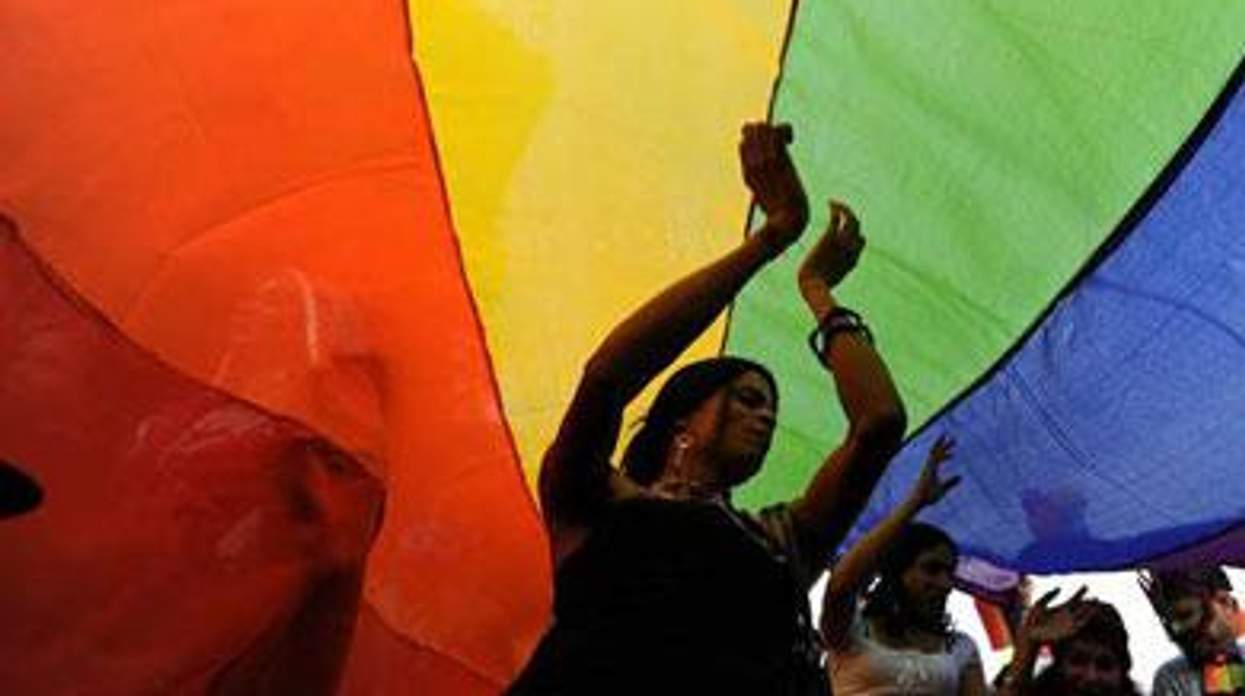
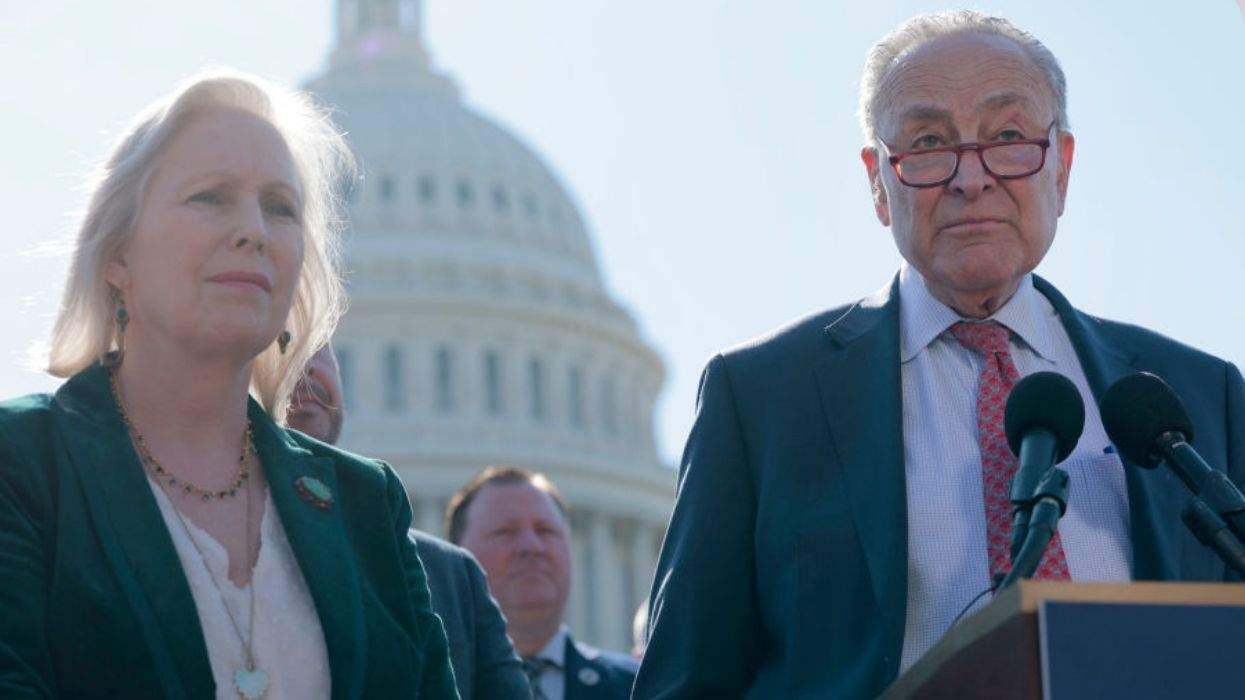

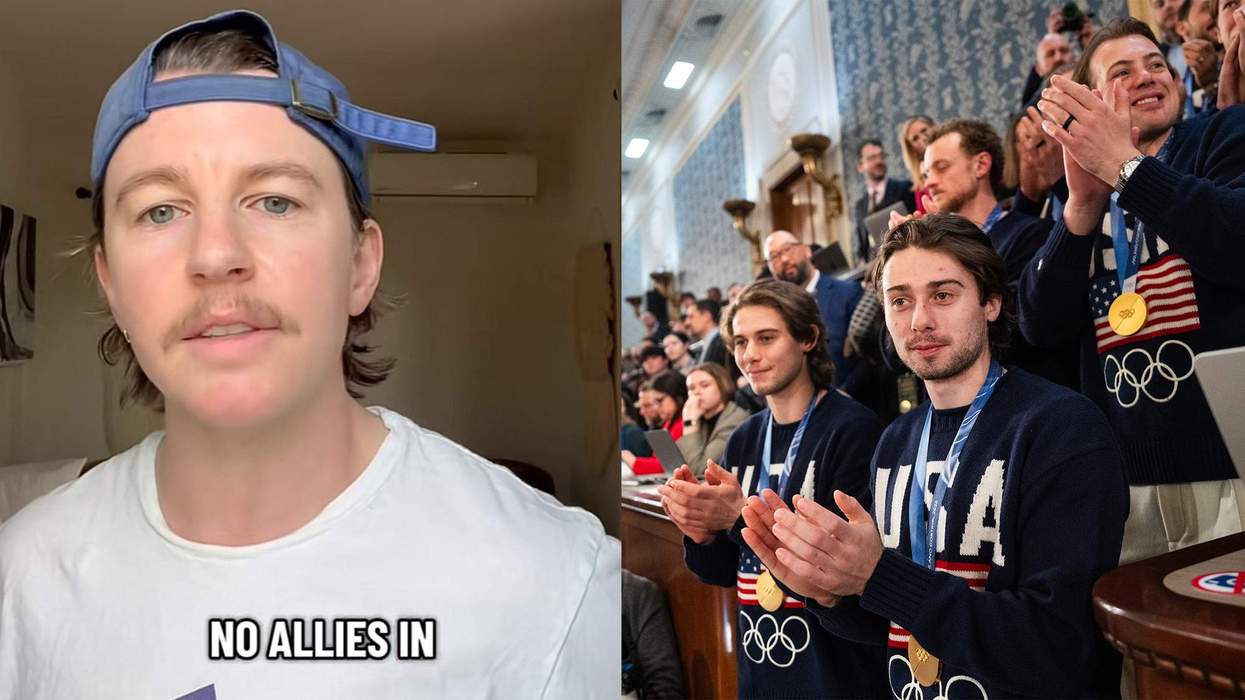






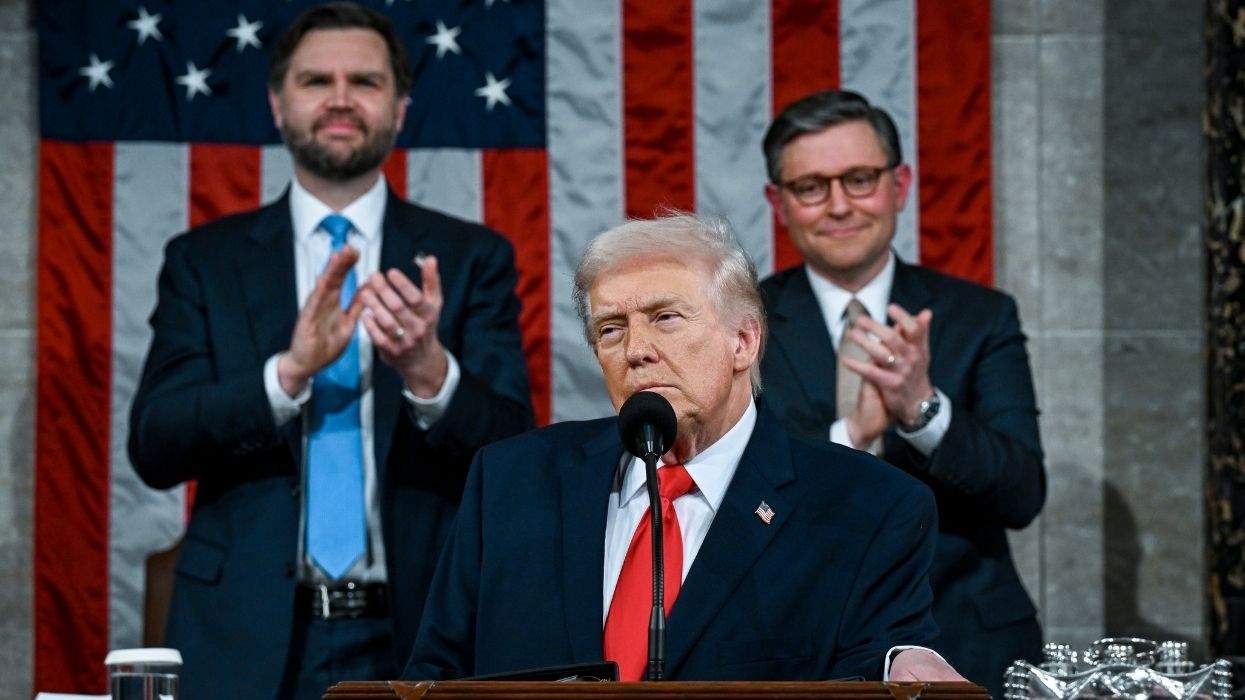


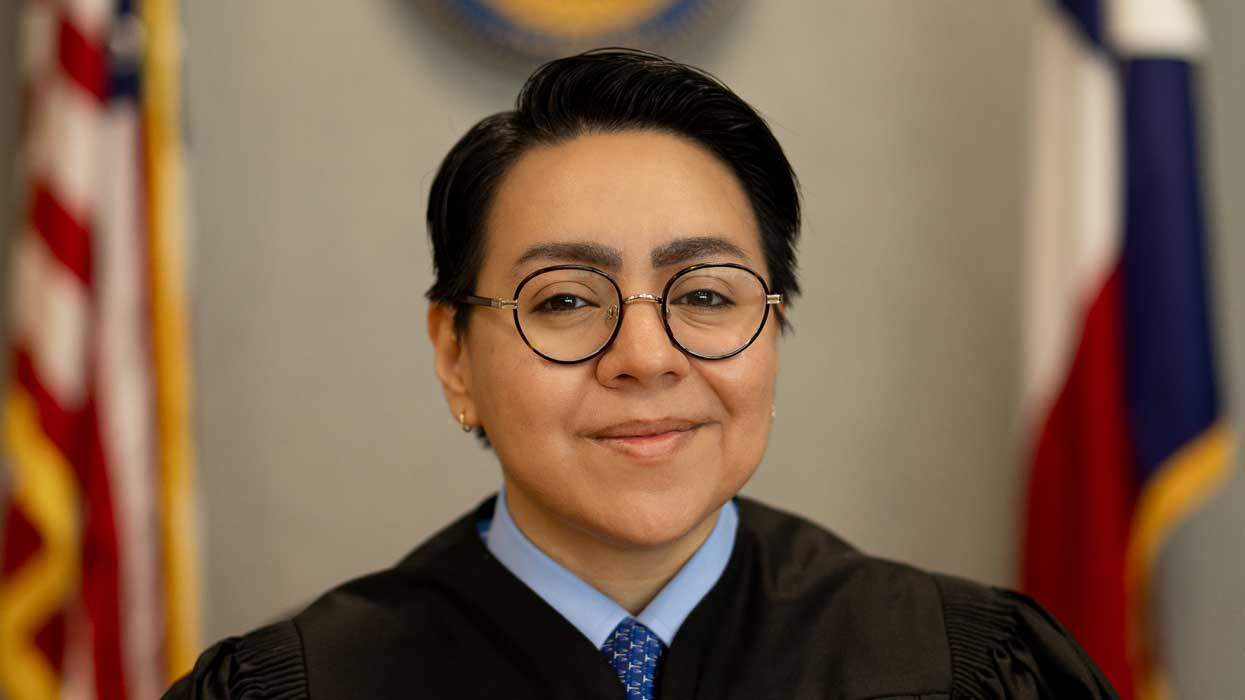
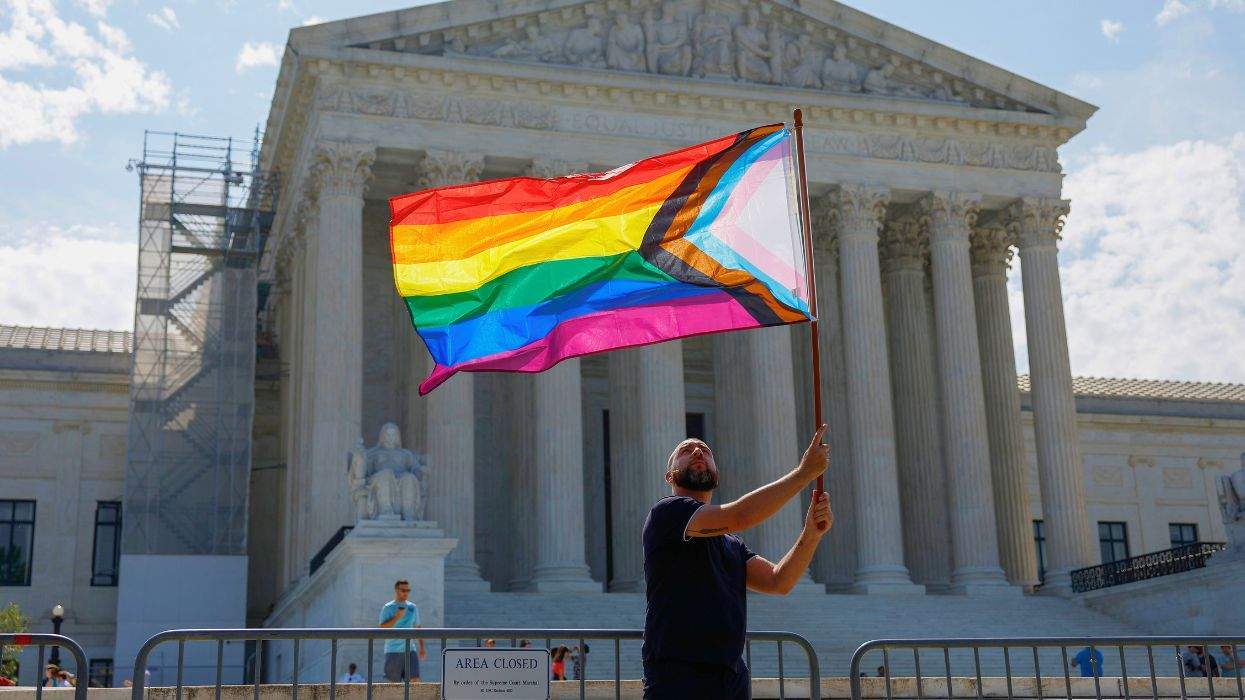
Charlie Kirk DID say stoning gay people was the 'perfect law' — and these other heinous quotes
These are some of his worst comments about LGBTQ+ people made by Charlie Kirk.